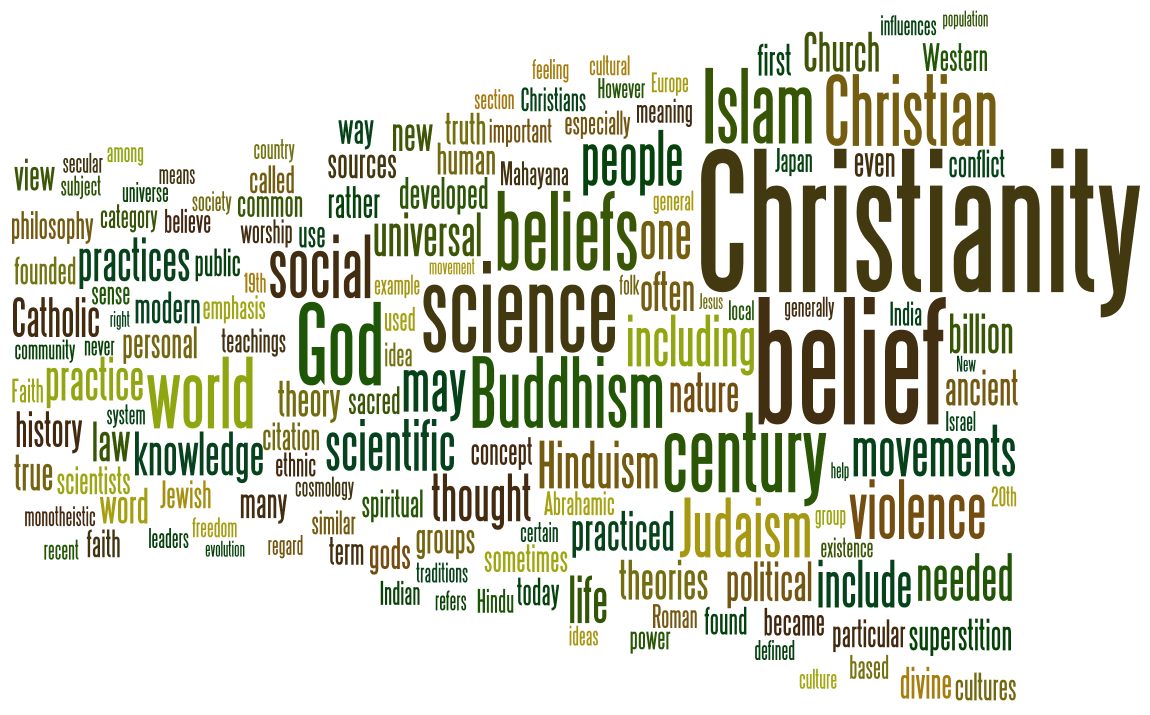Religious and spiritual practices can have positive effects on your health and well-being. Certain lifestyle habits are often influenced spiritual beliefs and values that are ingrained at an early age. These might include diet, sexual practices, and alcohol use. Religious communities also offer a benefit for many individuals by providing a strong sense of support and connection. In general spiritual people are more likely to live longer, have a lower risk of depression and suicide, be more faithful in relationships, be more resilient, be more satisfied with their family lives, and be happier overall.
The Human Experience
Religious practices can greatly enhance the human experience. Spiritual practices like daily prayers, singing in church, participating in missions, and going on weekend retreats tend to integrate emotions with intellect and minds with bodies. You are able to connect with others that share similar beliefs. These experiences may lift you up and provide another way of viewing things as part of a larger picture.
Spiritual practices can go beyond connecting your mind, body, and spirit by providing psychological and physical benefits that increase your overall health and well-being. Religious rituals and rites of passage help us transition from one phase of life to another, for instance, passing from adolescence into adulthood. These transitions might come in the form of baptisms, circumcisions, confirmations, and marriages. They are relevant to health because they provide rules for living in a fairly unruly world. Most faiths have a strong belief concerning maintaining a pure body as a vessel of the soul.
Happiness
Scientists have actually found that spiritual practices and religious beliefs tend to make those practicing them happier. Believers are often found to be less depressed and less anxious than nonbelievers. One study performed in 2015 by researchers at the London School of Economics and the Erasmus University Medical Center found that the only social practice associated with sustained happiness was participation in religious organizations. The individuals in religious organizations tended to be happier than charity volunteers, participants in political or community organizations, or students enrolled in educational courses. Some experts believe that religion gives individuals a feeling of a higher purpose.
Support
Many religious organizations offer a strong support network. The way international offers literature and content that helps guide individuals through life. A clearly defined set of guiding principles more precisely differentiates right and wrong behaviors. But religions like Christianity also offer forgiveness. People tend to want to be a part of a community. This sense of belonging encourages people to practice religious rituals that can enhance their lives. When times do get hard, they have a community to turn to that provides uplifting support.
Mental Health
Both spirituality and religion can have a positive impact on mental health. It can help individuals deal with stress and generate peace, forgiveness, and purpose. Religion gives people something to believe in, provides a sense purpose, and offers connection. It gives you a sense of connection to something bigger than yourself. It allows you to understand your own interpretation of the meaning of life. It incorporates healthy practices for the mind and body, which are interconnected. It gives you a sense of community and individuality at the same time. It may also encourage mindfulness and a unity with your surroundings.
Ways Religion Improves Health
Spirituality affects physical and emotional health in a variety of ways.
- Giving Back: Community service can act as a buffer against stress. Religious people tend to volunteer and give to the poor more often.
- Coping With Stress: Many religions and spiritual practices encourage different forms of meditation. Instead of using unhealthy coping mechanisms like overeating or drinking, religious folk tend to fall back on meditation and prayer. Taking time to meditate can improve health, happiness, and focus. It can even help decrease pain and depression.
- Community: One of the biggest benefits of religion is the built-in community. Social connection is one of the top predictors of health right below food and shelter. Religious people are more likely to spend time with family and church groups. They are associated with a group that provides a strong sense of belonging.
- Prayer: Prayer provides a lot of people with comfort. It helps people deal with difficult emotions, leads to healthier relationships, encourages forgiveness, and provides hope. People often turn to prayer in their darkest hour when nothing else seems to work. This last bit of hope is sometimes all a person needs.
Science has shown a connection between religion and spirituality. Many different religions have healthful practices that encourage believers to take care of their bodies. Believing in a higher power creates purpose and hope in your life. It enhances your human experience through daily rituals. One of the biggest advantages of a spiritual lifestyle is the community connection. This is a sometimes underrated predictor of health and wellness. You are surrounded by encouraging individuals that have similar deep-seated beliefs.

